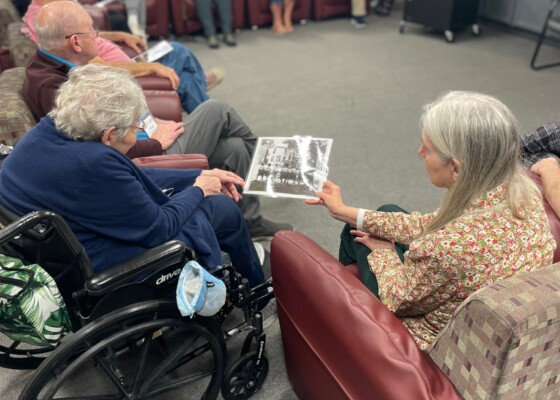Lots of Candles, Plenty of Rivalry
February 20, 2013I had the pleasure of attending IUPUI’s Weekend U on Saturday, and it was, as always, a great way to get the mental gears engaged through hearing about what the…
 I had the pleasure of attending IUPUI’s Weekend U on Saturday, and it was, as always, a great way to get the mental gears engaged through hearing about what the good folks at the university have been investigating lately. Examples include Alzheimer’s, physiological factors in liberalism and conservatism, personal branding and dysfunction in politics.
I had the pleasure of attending IUPUI’s Weekend U on Saturday, and it was, as always, a great way to get the mental gears engaged through hearing about what the good folks at the university have been investigating lately. Examples include Alzheimer’s, physiological factors in liberalism and conservatism, personal branding and dysfunction in politics.
But let me pick just one topic that came up – how people of different generations think, communicate, work and compete. Here’s a quick definition:
– Traditionalist or Silent Generation: born 1922-1945
– Baby Boomers: born 1946-1964
– Generation X: born 1965-1980
– Generation Y or Millennials: born 1981-2000
There is an inherent rivalry between the generations that can affect the workplace, as we discussed at IUPUI. But this clash of attitudes, values and lifestyles is even more likely to show up in families.
Our best guide to the generational rivalries in families may well be Anna Quindlen, Pulitzer Prize-winning columnist and novelist, who has written about generations in Lots of Candles, Plenty of Cake. This book has been circulating among our Novel Conversations book clubs who enjoy Quindlen’s wry humor and candid stories about her own experiences over the years.
Quindlen writes that her generation of Boomer women often dismissed women of her mother’s generation who (they thought) filled boring traditional roles. “We have all been part of the great unbroken generational chain of younger people who believe they could do much better than those who came before them,” she says. “And then one day we wake to discover that we are the older women we once discounted, and our perspective shifts.”
Quindlen finds her children’s generation to be good-humored, savvy and rightly skeptical of some choices made by her own generation, so she is not so quick to pass judgment on them in the usual way elders have done. Her conclusion: we can all learn from each other.
In February and March, Indiana Humanities is exploring the topic of “rivalry,” as part of its Spirit of Competition theme. This post was written by Nancy Conner, director of grants and coordinator of Novel Conversations.


